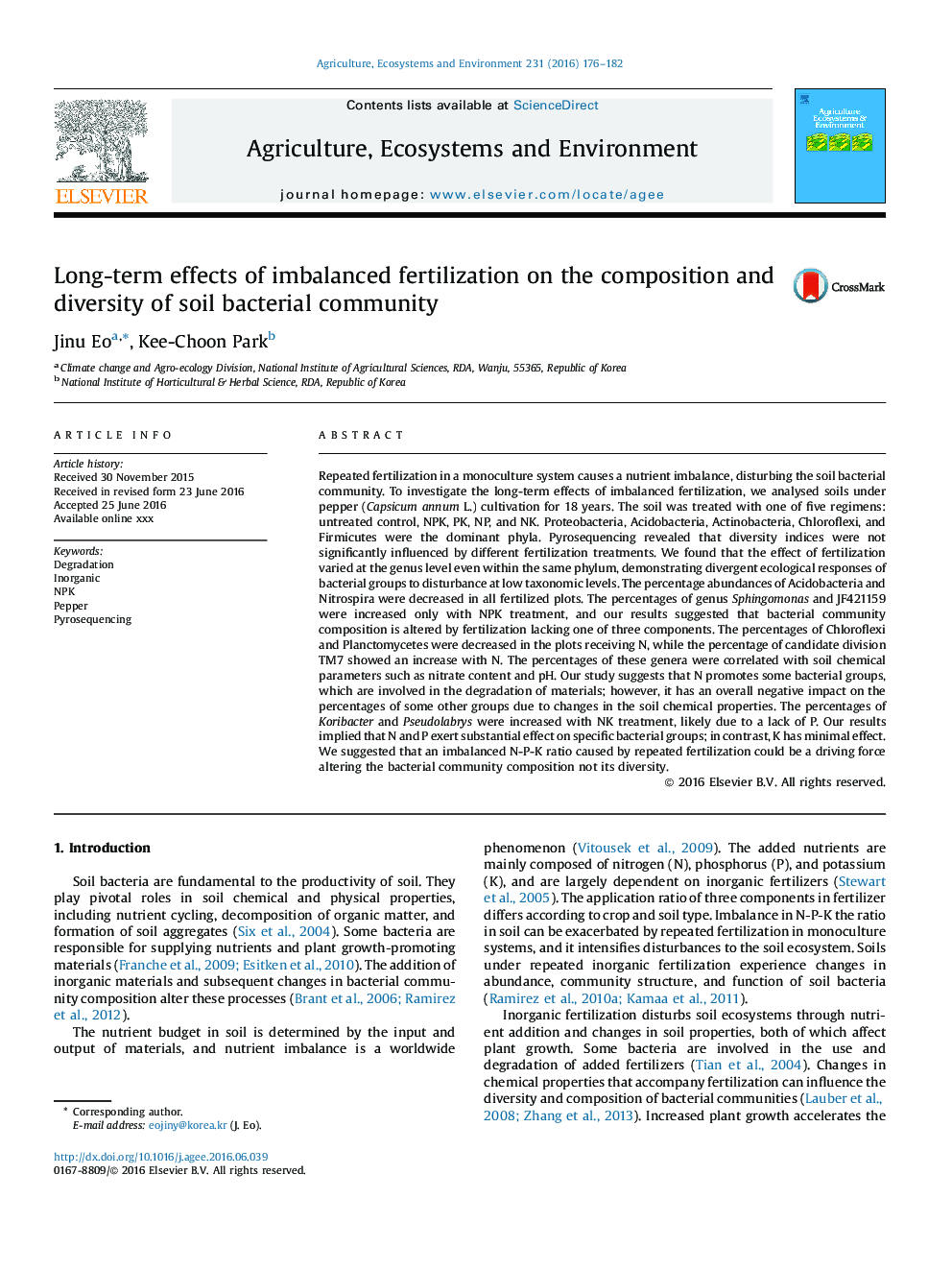| کد مقاله | کد نشریه | سال انتشار | مقاله انگلیسی | نسخه تمام متن |
|---|---|---|---|---|
| 8487352 | 1552021 | 2016 | 7 صفحه PDF | دانلود رایگان |
عنوان انگلیسی مقاله ISI
Long-term effects of imbalanced fertilization on the composition and diversity of soil bacterial community
ترجمه فارسی عنوان
اثرات بلندمدت لقاح ناسازگار بر ترکیب و تنوع جامعه باکتری خاک
دانلود مقاله + سفارش ترجمه
دانلود مقاله ISI انگلیسی
رایگان برای ایرانیان
موضوعات مرتبط
علوم زیستی و بیوفناوری
علوم کشاورزی و بیولوژیک
علوم زراعت و اصلاح نباتات
چکیده انگلیسی
Repeated fertilization in a monoculture system causes a nutrient imbalance, disturbing the soil bacterial community. To investigate the long-term effects of imbalanced fertilization, we analysed soils under pepper (Capsicum annum L.) cultivation for 18 years. The soil was treated with one of five regimens: untreated control, NPK, PK, NP, and NK. Proteobacteria, Acidobacteria, Actinobacteria, Chloroflexi, and Firmicutes were the dominant phyla. Pyrosequencing revealed that diversity indices were not significantly influenced by different fertilization treatments. We found that the effect of fertilization varied at the genus level even within the same phylum, demonstrating divergent ecological responses of bacterial groups to disturbance at low taxonomic levels. The percentage abundances of Acidobacteria and Nitrospira were decreased in all fertilized plots. The percentages of genus Sphingomonas and JF421159 were increased only with NPK treatment, and our results suggested that bacterial community composition is altered by fertilization lacking one of three components. The percentages of Chloroflexi and Planctomycetes were decreased in the plots receiving N, while the percentage of candidate division TM7 showed an increase with N. The percentages of these genera were correlated with soil chemical parameters such as nitrate content and pH. Our study suggests that N promotes some bacterial groups, which are involved in the degradation of materials; however, it has an overall negative impact on the percentages of some other groups due to changes in the soil chemical properties. The percentages of Koribacter and Pseudolabrys were increased with NK treatment, likely due to a lack of P. Our results implied that N and P exert substantial effect on specific bacterial groups; in contrast, K has minimal effect. We suggested that an imbalanced N-P-K ratio caused by repeated fertilization could be a driving force altering the bacterial community composition not its diversity.
ناشر
Database: Elsevier - ScienceDirect (ساینس دایرکت)
Journal: Agriculture, Ecosystems & Environment - Volume 231, 1 September 2016, Pages 176-182
Journal: Agriculture, Ecosystems & Environment - Volume 231, 1 September 2016, Pages 176-182
نویسندگان
Jinu Eo, Kee-Choon Park,
